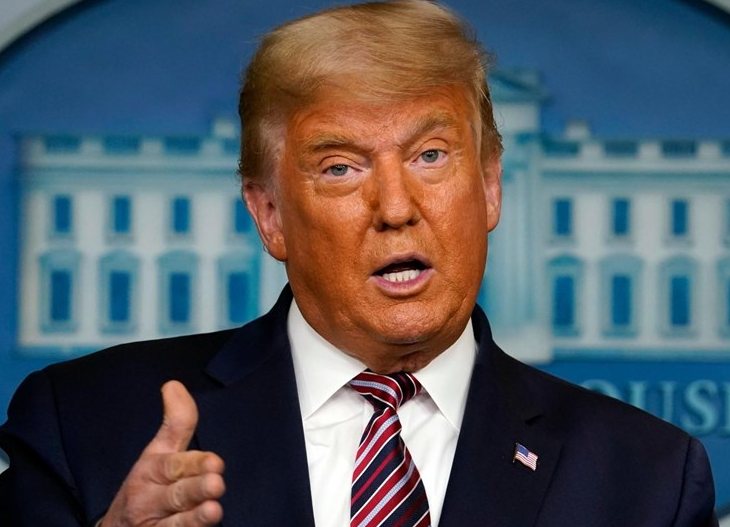Chaos reigned on Capitol Hill Wednesday as three high-profile crypto bills stumbled just before take-off — despite a personal intervention by Donald Trump himself. The former president’s lobbying effort aimed at quelling GOP infighting didn’t do the trick. The bills remain stuck, the clock is ticking, and Washington’s bid to tame the digital asset industry just took another hit.
A narrow procedural vote in the House passed earlier in the day, allowing the measures to be considered. But the real test — the vote to actually begin debate — dragged on for over an hour, revealing a messy divide within Republican ranks. Now, with the House leadership holding back on scheduling and the Senate looking noncommittal, the future of these crypto laws is far from clear.
The Bills on the Table: Ambitious, Controversial, and Now Frozen
At the heart of this impasse are three separate bills bundled into a regulatory package that’s been months — if not years — in the making. The stakes? Huge. But so are the internal disagreements.
One bill, the GENIUS Act, aims to provide federal guidance on stablecoins — a move intended to boost innovation while putting the brakes on market chaos. The CLARITY Act, on the other hand, tackles one of the most hotly contested issues in crypto: how digital assets are legally defined in the US. The third bill is arguably the most political — it would outright ban the Federal Reserve from issuing a central bank digital currency (CBDC), a concept that’s become a flashpoint for civil liberties debates.
Each of these bills has support. But each one also triggers concern, especially among conservative Republicans who fear regulatory overreach.
One GOP lawmaker, speaking anonymously, said:
“This is not a crypto issue, it’s a scope-of-government issue. We’re being asked to trust federal agencies we don’t trust. That’s the problem.”
Trump Steps In — But Finds No Quick Fix
This wasn’t just another legislative hiccup. Donald Trump reportedly called in several GOP holdouts to the White House this week. His goal? Get them onside — or at least not in the way.
But for all his bravado, even Trump couldn’t wrangle full unity. Sources close to the matter say the meetings were “tense” and that more than one lawmaker refused to budge.
• Trump has recently pivoted to support crypto, promising “freedom to own digital dollars”
• Still, several Republicans say the legislation hands too much authority to federal regulators
• One key sticking point is whether the bills undermine states’ rights, particularly on stablecoin oversight
So while Trump can command a room, it turns out he can’t (yet) command consensus — especially on financial policy.
What’s Really Holding This Up? It’s Complicated
Let’s break it down. The delay isn’t about crypto alone. It’s about politics, precedent, and personal agendas.
The House Freedom Caucus has pushed back against what they describe as “rushed and overly broad” legislation. Meanwhile, more centrist Republicans and some Democrats argue that the US is already falling behind other countries when it comes to digital asset regulation.
At the core of the dispute are three overlapping concerns:
-
Control: Who gets the final say — federal agencies or states?
-
Privacy: Would a CBDC allow too much government surveillance?
-
Definition: Are crypto tokens securities, commodities, or something else entirely?
Then there’s the Senate, which hasn’t indicated a clear path forward. Without bipartisan support in that chamber, even a House breakthrough may not matter — at least not this year.
How the Crypto Industry Is Reacting
The response from the crypto industry has been a mix of frustration and cautious relief.
For some, the delay prevents potentially harmful regulation from becoming law. But for most, the uncertainty is worse.
“We need rules, even if we don’t like every detail,” said Kristin Smith, CEO of the Blockchain Association. “A patchwork system is untenable.”
According to CoinDesk, industry lobbyists have been ramping up efforts this summer, spending more than $25 million collectively in 2024 alone. But despite the cash and connections, their progress in Washington is still tied up in old-fashioned gridlock.
Here’s a quick look at crypto lobbying spend this year:
| Lobbying Group | 2024 Spend (USD) | Focus Area |
|---|---|---|
| Blockchain Association | $8.3 million | Regulatory clarity |
| Coinbase | $6.2 million | Securities classification |
| Ripple Labs | $4.9 million | Stablecoin guidelines |
| Chamber of Digital Commerce | $3.6 million | CBDC ban |
And all that effort? Still waiting on a real result.
What Happens Next? Well, Nothing Yet
For now, everything is paused. House leadership hasn’t announced when — or if — the vote to open debate will be rescheduled. The delay could be days… or months.
Senate Republicans remain publicly mum, while Democrats are split between progressive calls for consumer protection and moderate appeals for innovation support. The Biden administration hasn’t taken an official position, though insiders say the White House is “watching closely.”
One GOP aide put it plainly:
“We had momentum. Now we have… a calendar full of nothing.”
Crypto companies, meanwhile, are left navigating a legal grey zone. Some have considered relocating operations offshore. Others are holding out hope that the deadlock won’t last forever.
And on Wall Street? Traders shrugged. Bitcoin held steady around $65,000 — a sign, perhaps, that uncertainty is now just another part of the crypto landscape.


 Bitcoin
Bitcoin  Ethereum
Ethereum  Solana
Solana  Cardano
Cardano  Chainlink
Chainlink  Avalanche
Avalanche  Sui
Sui  Polkadot
Polkadot  Mantle
Mantle  Bittensor
Bittensor  NEAR Protocol
NEAR Protocol  Internet Computer
Internet Computer  Cosmos Hub
Cosmos Hub  Algorand
Algorand  Aptos
Aptos  Filecoin
Filecoin  Render
Render  Arbitrum
Arbitrum  Jupiter
Jupiter  Sei
Sei  Stacks
Stacks  Optimism
Optimism  Injective
Injective  Celestia
Celestia  The Graph
The Graph  Pyth Network
Pyth Network  THORChain
THORChain  Immutable
Immutable  MultiversX
MultiversX  dYdX
dYdX  Akash Network
Akash Network  Flow
Flow  Illuvium
Illuvium  Kujira
Kujira  Manta Network
Manta Network  Metis
Metis  Dymension
Dymension